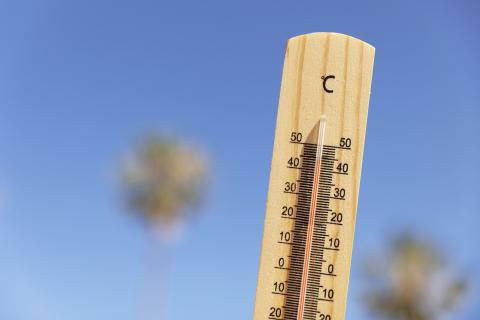University of Pennsylvania
If you are the contact person for this centre and you wish to make any changes, please contact us.
Climate physicist, oceanographer and research consultant at the University of Pennsylvania

Two papers published in Nature Climate Change analyse the possibility of exceeding the Paris Agreement targets of limiting warming to 1.5°C above pre-industrial temperatures. Both papers suggest that having exceeded this warming threshold by 2024 could indicate that we have entered a period of several decades with average global warming of 1.5 °C. According to the authors, rigorous climate mitigation efforts are needed to keep the Paris Agreement targets within reach.

The year 2024 was the warmest year on record globally and the first calendar year in which the global average temperature exceeded its pre-industrial level by 1.5 °C, the Copernicus Climate Change Service has confirmed.

Scientists in Hong Kong have studied the usefulness of six indices that estimate the severity and health hazard of a heatwave. Analysing several episodes in recent years in Spain, India and the United States, they conclude that five of the six were not able to capture their severity and spatial distribution effectively enough, especially in low humidity conditions. The most useful was the so-called "lethal heat stress index", but the researchers - publishing their results in the Cell group's journal Nexus - say that it too can be improved and that a more global framework is needed to mitigate dangerous heatwaves.

An international group of researchers analyzed multiple data sets with current measurements and historical reconstructions. Their research concludes that, in the extratropical regions of the Northern Hemisphere (including Europe), the summer of 2023 was the warmest in 2,000 years. The authors published the results in the journal Nature.

The Copernicus Climate Change Service, together with the World Meteorological Organisation, publishes the report on the state of Europe's climate in 2023. According to their findings, last year was one of the hottest on record, with a record number of extreme heat stress days and widespread flooding. According to their calculations, heat-related mortality has increased by 30 % over the last 20 years.

The World Meteorological Organisation (WMO) has declared the onset of El Niño conditions on Tuesday. "The declaration of El Niño by the WMO is the signal for governments around the world to mobilise preparations to limit the impacts on our health, our ecosystems and our economies," said WMO Secretary-General Petteri Taalas. According to the WMO statement, El Niño conditions have developed in the tropical Pacific for the first time in seven years, setting the stage for a likely rise in global temperatures and altered weather and climate patterns.

A study concludes that climate change will lead to less precipitation in the form of snow and more extreme rainfall events, especially at high altitudes in the northern hemisphere, increasing the risk of floods, landslides and infrastructure damage. According to the authors, this is the first time this risk of extreme precipitation in liquid and solid form has been studied separately. Their calculations indicate that for each degree of temperature increase, the risk of extreme rainfall in high-altitude regions will increase by 15 %. The authors publish their results in the journal Nature.

Research published in Science assesses for the first time quantitatively the climate projections made by scientists at oil company Exxon and ExxonMobil Corp between 1977 and 2003. According to the study, most of their projections accurately predicted warming consistent with subsequent observations. However, the authors point out that the company's public statements contradicted its own scientific data.